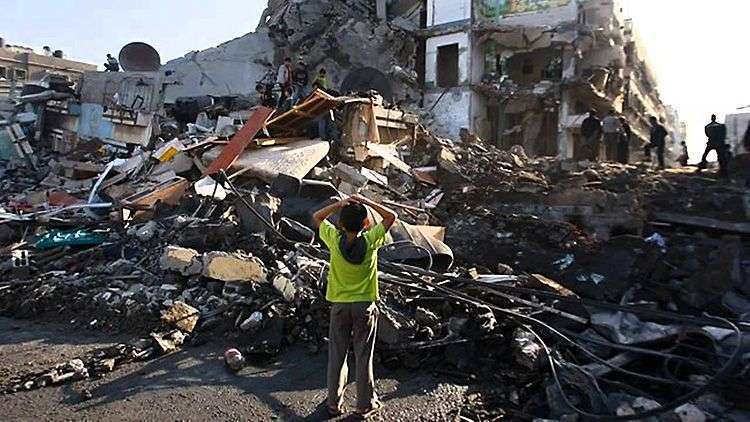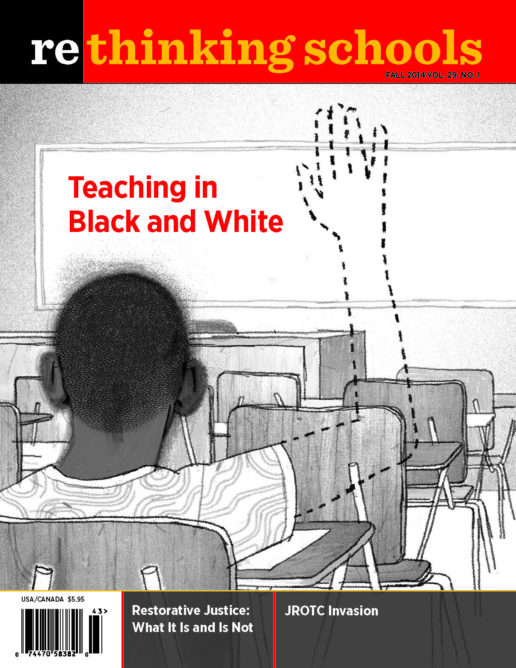The Children of Gaza

Like millions around the world, Rethinking Schools editors have been horrified and angered by Israel’s assault on the Palestinian people of Gaza. Of the more than 2,100 Palestinians killed, the vast majority civilians, more than 500 have been children. The images of Israeli bombs destroying hospitals, homes, and schools are devastating—indiscriminate killing by weapons whose use in highly populated areas constitute war crimes, according to Human Rights Watch. This compounds the ongoing Israeli siege that has turned Gaza into an open-air prison where the Israeli military controls the entry and exit of people and goods—a collective punishment in violation of international humanitarian law.
Israel says it is acting against rockets. These have led to a total of six civilian deaths in Israel—tragic but inevitable as long as srael maintains its illegal and unjust occupation and as long as it enforces its blockade on Gaza.
As we mourn the deaths, injuries, and destruction, we want to call attention to a less noted crisis: the long-term effect on the children who survive. According to Ziad Abbas, of the Middle East Children’s Alliance (MECA), himself a Palestinian refugee:
After this attack ends, children in Gaza who are 8 years old will have experienced three wars: 2008-9, 2012, and now 2014. They have survived, but social workers and psychologists working in Gaza say that the children have lost focus, they have insomnia, they wet their beds. Many have lost the ability to speak or to play. They live, but the Israelis have killed their childhood.
This trauma has a devastating impact on children’s ability to learn and develop. During the recent assault, half a million people were forced from their homes to seek shelter, often in local schools. There they stay, crowded maybe 100 to a room, with insufficient water and food. Then, many of the school shelters were themselves bombed. Either way, children come to associate school not with learning, but with terror and loss. In all, 141 schools were destroyed or damaged; six universities were also damaged.
As educators, parents, and activists, we have a critical responsibility to speak out against these attacks, paid for in large part with U.S. tax dollars. We can’t turn back the clock. But we can insist that Israel immediately end the seven-year siege of Gaza and respect the safety and human rights of Palestinians. We also call for an end to all U.S. military, economic, and diplomatic support for Israel’s illegal occupation of Palestinian lands and a just peace that can secure a future without war for the children of Gaza and all their neighbors.
“We will overcome and come back,” Abbas says. “As Palestinians we have learned to work together, teachers and parents, to protect the children and to help them see education as part of their resistance.” We invite the Rethinking Schools community to contribute in a small way to rebuilding Gaza’s schools. Since 2009, MECA’s Maia Project (maia means water in Arabic), in partnership with local organizations, has been installing low-cost water purification units in Gaza schools. The entire water system of Gaza—wretched even before the latest assault—was systematically destroyed, so the need for safe water is critical. To learn more about the Maia Project, go to mecaforpeace.org/projects/maia-project.
Finally, we urge educators to join together to create curriculum on Israel-Palestine that looks deeply and honestly at the roots of crisis and the prospects for peace. For our part, we will continue to work with teacher-writers who want to share their work.

